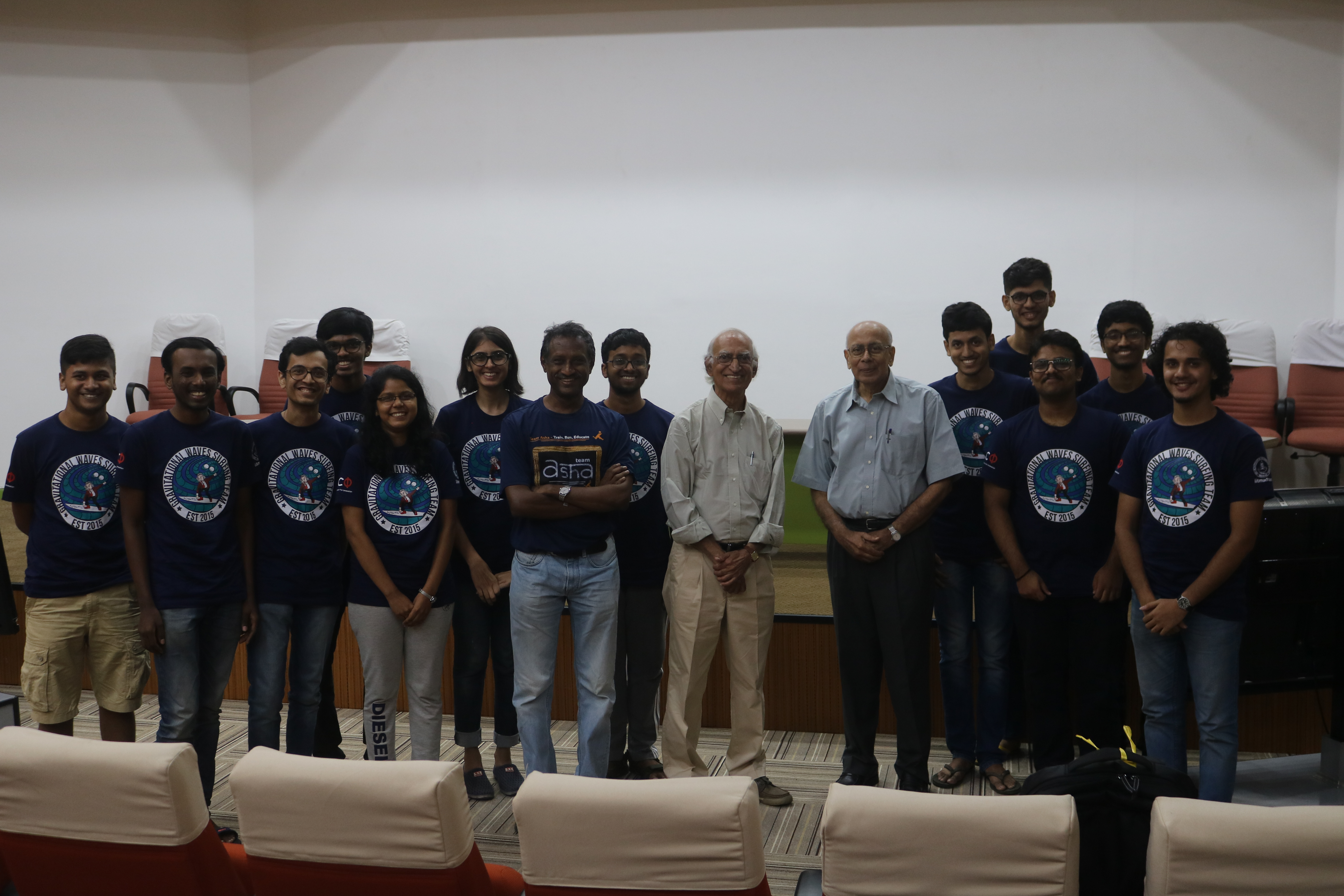A couple of hours into talking to a bunch of French foreign exchange students, this is how they summed up their language: “We are blessed and grateful to have been born French. We don’t have to suffer learning the language structurally. It’s just too hard. Even for us.”
To all the students who have done or are doing HS1110 or HS1120, F.
Given the number of foreign students we tend to see around on campus, you would be surprised to know that out of the 12,000 odd students here, just about 10 are French, and even fewer are from France. And sadly enough, they aren’t aware of our Insti lingo. They would rather have it that way because they fear using our lingo outside Insti, not knowing how to tell apart our lingo and our regular Indian inflections. It is understandable that they do not want to be misunderstood for someone who does not know both the regional language and English, and be robbed of an additional 2000 rupees for an auto ride from Insti to the airport.
Nonetheless, exclusive expressions are not unique to us.
Our French students here in Insti, have certain phrases that they exclusively use only here. Of all of them, the most peculiar one is “to pay a lassi”.
They say they will “pay a lassi” when they’re placing a bet and are sure to win it, essentially meaning that they will give up the best drink they’ve tasted here to the other person if they go wrong. But “paying a lassi” does not necessarily involve literally betting a lassi. It is only to mean that they’re absolutely sure about something.
As is the case with multiple other languages, English sometimes overshadows French too. Although English was generally not spoken by more than half the population in France, the numbers are slowly increasing now because of the consumption of popular global media content. Of late, you may have noticed that even Korean has had a similar, yet subtle, effect on young Indian girls. (:P) And the French say that it is no different back home.
Indian languages are to the French what Malayalam is to the non-Malayalam speaking Indians. Not understanding the language is one thing, while not being able to distinguish the words from each other is another. It feels like a bunch of rhythmic sounds put together without breaks.
Having grown up in India, we have a certain rhythm in our accents that we apply to English. What’s compelling is that from the perspective of a person whose native language is flat-toned like French, we have an apparent suspense hidden in ours. To cite a textbook example:
Professor: Here, the y coordinate cannot be
…
positive.
If you had read that from an informed Indian standpoint, the comprehension of which has been ingrained into our minds from years of Indian schooling and typical teacher tones, you would notice that there is a drumroll effect as we begin our sentences and as we approach the penultimate word, our pitch rises, making it seem like we are asking a question. The catch is that the question-like sentence will be immediately completed by the speaker themselves after a brief pause, bringing about a confusion as to whether it was a rhetorical question, an actual question that excited the person speaking so much as to give out the answer immediately, or a rhetorical question for which an answer had to be given instantly out of disappointment in their comprehension. Simply put in the words of a shy French foreign exchange student, “It can get confusing!”
Adding on to this is our incorporation of “la?”, “na?”, “no?” and “right?” to the end of our sentences. Although it makes a lot of sense to us, given that this is common in most of the regional languages we speak, it stands out prominently to the French. They understand that we are emphasizing on the point that we are making. But the question is more of a “why” than a “what”. They find it interesting that our inflections are more interactive than that of the languages they know and speak.
But for speakers with an inflection that’s seemingly quite interactive, we don’t have, or don’t use, a widely ranged vocabulary, particularly when it comes to superlatives. Here in Insti, of course we use “max” (cringe max, for instance) but how do we say it when we’re being expressive? “Macha, it was tooooo cringe da.” The “too” we unconsciously use delights our French students here for reasons that are tooooo complex for me to understand. Similarly, “tch” is something that they find difficult to comprehend and are, at times, somewhat even tickled by it.
Moreover, they find sentences like, “Okay, I’ll pack. Bye!” amusing, for the simple fact that we can wrap a conversation up in one sentence and not offend anybody. “It is striking that it’s normal here. Back home, we have to gradually end the conversation, else it is considered pretty rude,” says one of the French students. On more such accounts, they feel that Indians are very straightforward while the French have to be subtle and even elusive at times. “Honestly, if our politicians speak for 10 minutes, 9 minutes will be nothing” he says, clearly oblivious to our own.
So, to make things less complicated for them and a bit fun for us, we tried to capture the intersection between our English and their French: Insti lingo’s French equivalents.
To give you an example or two, the next time you terribly cup your quiz- which will, without doubt, happen to everyone- you can be exotic and exclaim, “Fais chier!”. Or, if you are too cool to emote at the hit that your grade has taken, you can still be exotic and say, “Tranquille.”
But even if you start throwing around these French equivalents like you do with some expletives and words like “cup” and “lite”, there is a custom that you cannot imagine adopting in India, called “la bise”. It is the exchange of kisses between women, or between a man and a woman, and it is quite common with the French. Although this happens only between individuals who are personally close, doing it in India, and particularly in Chennai, will draw the eyes of our people regardless of their age. However, this custom is so deeply rooted in the French culture that COVID-19 fights a losing battle against it. There are concerns regarding this pandemic diluting the custom, but we can only hope that the French do not have to give up something as weighty as a part of their culture. As for us Indians, we’ll stick to our namaste for now and try not to be too exotic given the situation the world is in at the moment.
Beyond everything they appreciate and delight themselves with, they find it out of place that we use many English words in our regional languages without being bothered by it. Addition of non-French words to French is not very desirable to them. They appreciate proper usage of the French vocabulary and tend to keep French, French.
So, here’s what we’ll do today, on French Language Day. In honor of our tiny yet enthusiastic French population here: we’ll take pride in our regional languages by restricting our mixing and matching tendencies to speak them as authentically as possible. Except, of course, when we speak English. How else could something as sublime as our lingo have been born?





